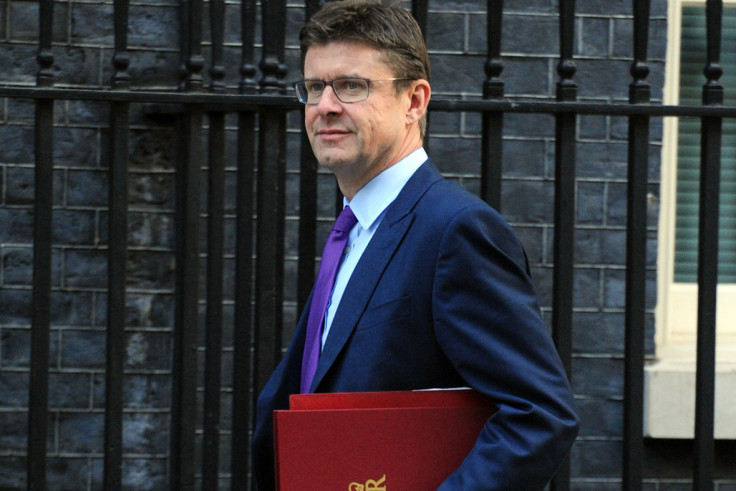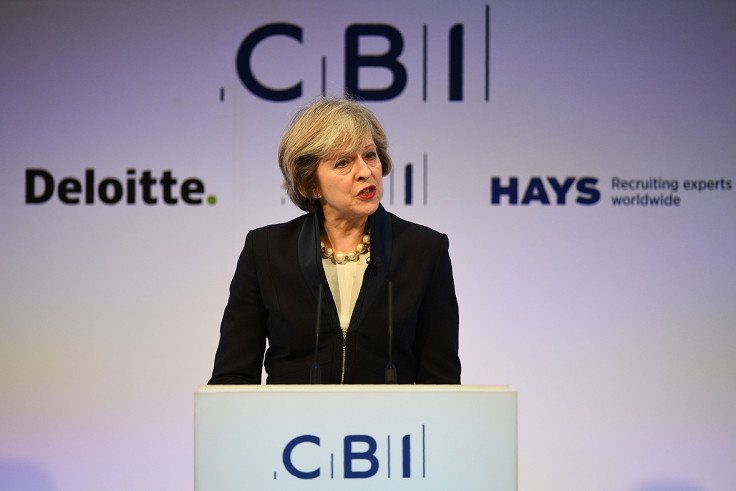Government unveils plans for greater scrutiny of private firms
Business Secretary Greg Clark proposes pay ratios show earnings gap between a chief executive and an average worker.

New measures to tighten standards across some of UK's largest firms have been announced by the government.
Business Secretary Greg Clark proposed pay ratios, which would show the gap in earnings between the chief executive and an average employee. But the government did not enforce more sweeping reforms as it has indicated a few weeks ago.
Shareholders would also be handed more powers to vote against bosses' pay, while workers would have a "voice" on boards, under the consultation plans.
The government's green paper, or discussion document, on corporate governance aims to increase public trust in business.
Prime Minister Theresa May has made tackling corporate excess one of her priorities in office.
The average chief executive of a FTSE 100 firm is now paid close to £5m, about 180 times the average worker, according to the High Pay Centre.
The paper also proposes to strengthen the corporate governance at the UK's largest privately-held companies, by encouraging them to adopt measures commonly used among public firms.
The move follows widespread anger over the collapse of privately-held BHS with the loss of 11,000 jobs and a big pension deficit earlier this year.
Top Shop billionaire Sir Philip Green sold to department store to consortium led by former racing driver and bankrupt Dominic Chappell for £1 only to see in fail a little over 12 months later.
The government said the proposed changes would better protect privately owned companies' employees, customers and pension funds from mismanagement.
Private firms will also be expected to report on diversity, greenhouse gas emissions and social and community issues.
Focus on private firms
If adopted, hundreds of prominent companies, such as Dyson, JCB and Pentland Group, the sportswear brands-owner, could be affected.
Clark said: "The government is determined to make Britain one of the best places in the world to work, to invest and to do business, and part of that means continuing to have a framework of corporate governance that is admired across the world."
The publication of the consultation comes after May appeared to step back from plans to force companies to appoint employees to their boards, an idea that had caused unease among companies.

She ruled out forcing firms to appoint employees to company boards when she gave a talk to employers' body the CBI last week, saying there were "other routes" to providing worker representation on boards, including advisory councils or panels. During the Conservative leadership contest in the summer May had vowed to put workers on company boards.
Former business secretary Vince Cable proposed pay ratios four years ago among a raft of measures designed to open up boardrooms, but these were later dropped.
Leon Kamhi, head of responsibility at asset manager Hermes, said: "While we would have liked the government to go further and propose elected employees on boards, we are encouraged to see recognition for the clear benefits that are gleaned from greater employee voice in a company's governance."
BHS effect
Simon Walker, director general at the Institute of Directors, added: "The most important element of the proposals is greater scrutiny for unlisted companies, which is long overdue.
"There are around 2,500 private firms which employ at least 1,000 people, and the damage that occurs when they are poorly governed can be substantial, as we saw with the collapse of BHS."
Public confidence in business has also been undermined by retailer Sports Direct controlled by billionaire founder Mike Ashley. Over the last year the firm has been mired in a string of scandals from cronyism, paying staff under the mimimum wage to allegations of bugging MPs who visited its key Shirebrook warehouse in Derbyshire.
TUC general secretary Frances O'Grady said: "This is not what Theresa May promised. Today's proposals are disappointing and will not do enough to shake-up corporate Britain.
"We need the voice of elected workers in the boardroom, rather than on advisory panels."
© Copyright IBTimes 2024. All rights reserved.









